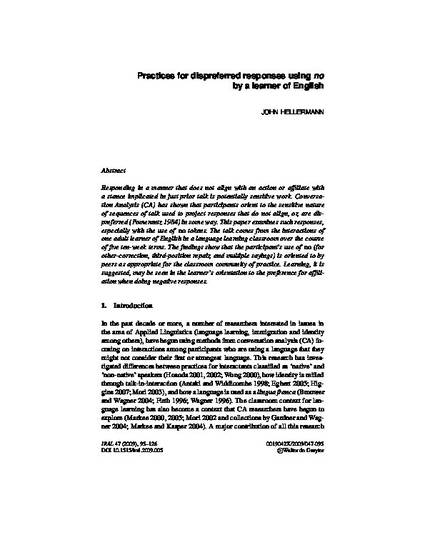
- Conversation analysis,
- Discourse analysis,
- Interpersonal communication,
- Second language learning
Responding in a manner that does not align with an action or affiliate with a stance implicated in just prior talk is potentially sensitive work. Conversation Analysis (CA) has shown that participants orient to the sensitive nature of sequences of talk used to project responses that do not align, or, are dispreferred (Pomerantz 1984) in some way. This paper examines such responses, especially with the use of no tokens. The talk comes from the interactions of one adult learner of English in a language learning classroom over the course of five ten-week terms. The findings show that the participant’s use of no (for other-correction, third-position repair, and multiple sayings) is oriented to by peers as appropriate for the classroom community of practice. Learning, it is suggested, may be seen in the learner’s orientation to the preference for affiliation when doing negative responses.

This is the publisher's final PDF. The final publication is available at: www.degruyter.com